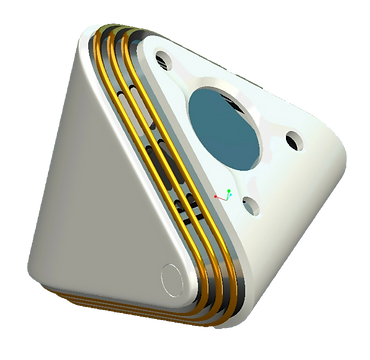I already see a number of technologies getting adopted faster because of pandemic conditions.
My short list just as a beginning point for discussion.
#1 teleconferencing: My small town clinic doctor closed the clinic and only sees patient via web teleconference. I am not sure how they will draw blood for my annual check up in several months, over the web.
#2 FarUVc: This technology is apparently not ready for primetime but i remain optimistic about wider use of short wavelength (207-222nm) UV light. Reportedly this is harmless to humans while toasting microbes. I can imagine a lot of applications for this (like inside airplanes, workplaces, etc, etc, etc.)
#3 Robot meat processing: There are already federal regulations restricting the amount of bone chips and spare parts allowed in processed meat. I would be willing to relax that some for safer and more robust food supply chain. They already use robots for heart surgery, surely they can carve meat, maybe even automated.
I suspect there are more technologies I am not even thinking about. Tag you're it.
JR
My short list just as a beginning point for discussion.
#1 teleconferencing: My small town clinic doctor closed the clinic and only sees patient via web teleconference. I am not sure how they will draw blood for my annual check up in several months, over the web.
#2 FarUVc: This technology is apparently not ready for primetime but i remain optimistic about wider use of short wavelength (207-222nm) UV light. Reportedly this is harmless to humans while toasting microbes. I can imagine a lot of applications for this (like inside airplanes, workplaces, etc, etc, etc.)
#3 Robot meat processing: There are already federal regulations restricting the amount of bone chips and spare parts allowed in processed meat. I would be willing to relax that some for safer and more robust food supply chain. They already use robots for heart surgery, surely they can carve meat, maybe even automated.
I suspect there are more technologies I am not even thinking about. Tag you're it.
JR













![Electronics Soldering Iron Kit, [Upgraded] Soldering Iron 110V 90W LCD Digital Portable Soldering Kit 180-480℃(356-896℉), Welding Tool with ON/OFF Switch, Auto-sleep, Thermostatic Design](https://m.media-amazon.com/images/I/41gRDnlyfJS._SL500_.jpg)









